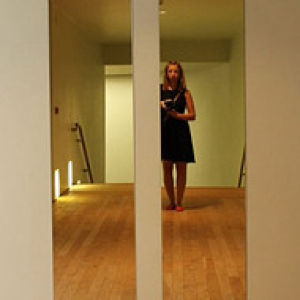Bookclub
I am a member of a bookclub that meets sporadically to discuss books by Palestinian authors. The members are a mix of ages, men and women, internationals and Palestinians.
After a long hiatus, largely due to the war in November throwing us all a bit off-track, we finally met again on St Patrick's Day.
It was my turn to lead the session, reviewing 'Born Palestinian, Born Black' by Suheir Hammad. Hammad is an activist, artist and poet from Brooklyn, who was born in Jordan to Palestinian refugee parents. She speaks her words movingly in live performance.
One example is this tribute to Rachel Corrie, the American activist who was crushed to death by an Israeli bulldozer "driven by a man", as it happens, ten years ago yesterday. 16 March 2003. Rachel's parents visited Gaza late last year. They have been denied any form of justice in the Israeli courts, which recently found that Rachel's death was the result of a "regrettable accident" with no liability arising.
Reading Hammad's book, which was originally published in 1994, I was struck by how the themes and images still resonated with my own experience of Palestine, albeit twenty years later. I find it desperately sad that so little has changed.
Of course, much of what I recognised in her words has to do with the rich culture and history of the Palestinian people. I feel privileged to have a shred of understanding of the significance of olive trees, kafiyes, and debke, to have shared in the rituals of tea with marra mia (dried sage) and argela (or shisha).
I was struck by the violence of some of her words, which express the anger and frustration of generations of Palestinians, refugees within their own land and in the disapora. The juxtaposition of the Palestinian experience with her own environment of consumer capitalism in the US is also striking.
The recently-added 'Gaza Suite', an addendum to the original publication, expresses with great power the horror of 'Operation Cast Lead' in 2008-9, which Hammad witnessed from afar, powerless to help.
I asked the Palestinians present if they agreed with her description of Gaza as "hell on earth". They said they understood her choice of words, but that Gaza to them was something more than that, something holy. Their home, despite the many hardships suffered here.
A member of the bookclub from the US told us how reading Hammad's poetry had enriched her understanding of the importance of land to the Palestinian people, something which, she felt, was not such a central aspect of Americans' identity due to their nation's relatively short life.
We spoke about the title of the book and how Hammad views being black as being 'the other'. The bookclub organiser, a young woman from Gaza, noted that Hammad's referencing of Malcolm X reminded her of her own experience of reading his work. His description of reading books by candlelight in prison resonated with her, as she herself was reading his book by candlelight, during one of the frequent blackouts experienced in the "open-air prison" of the Gaza Strip.
The same girl spoke of how she feels like 'the other'; her feeling of being oppressed and persecuted sometimes makes her feel 'Jewish'. She can identify with the historic suffering of the Jews.
The book provoked much interesting discussion about identity, powerlessness, and action. Hammad's poetry is powerful, moving, and infused with the unwavering spirit of resistance.

Comments
Sign in or get an account to comment.


